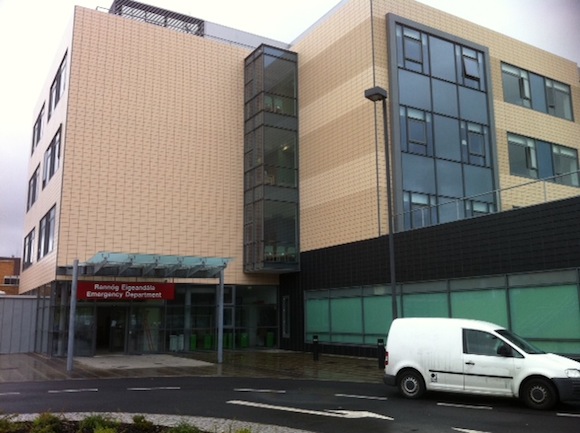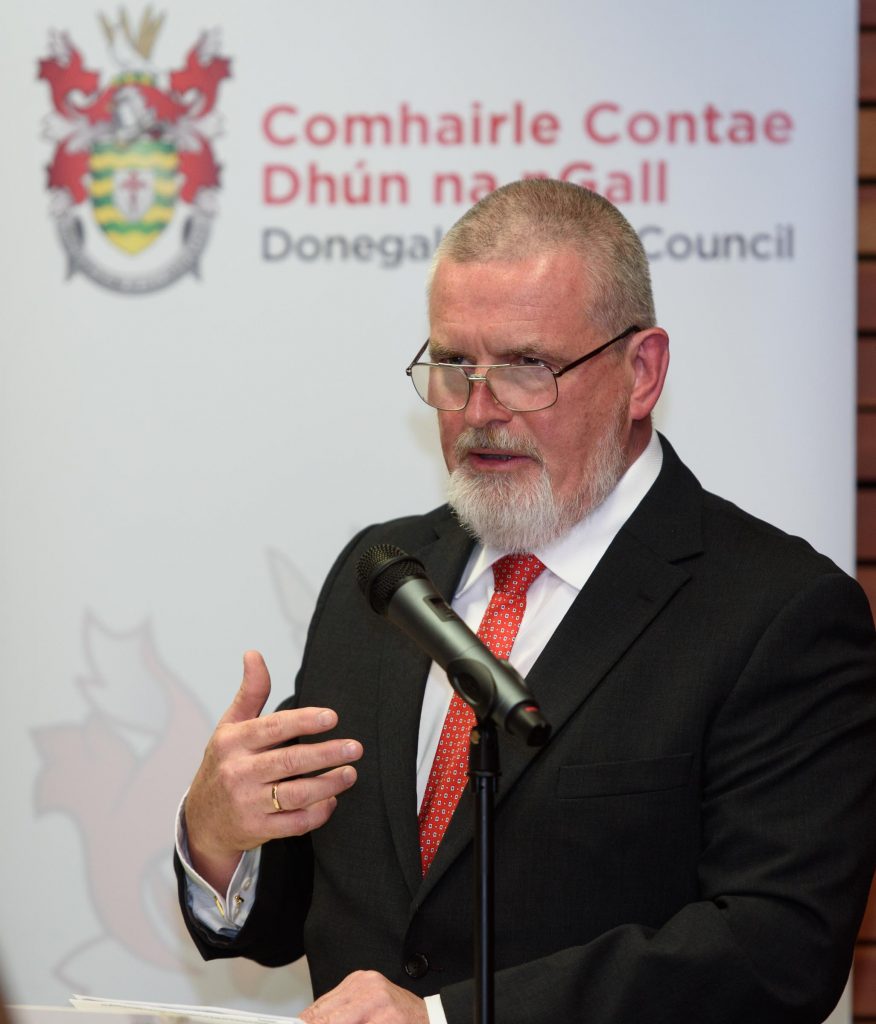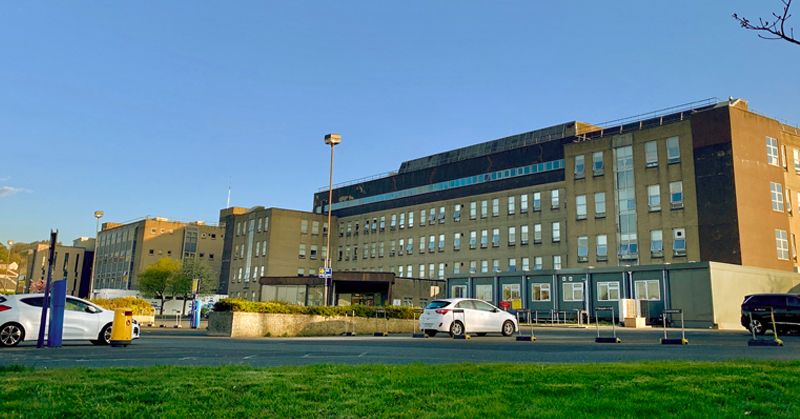AN INQUEST has heard that ‘systematic overcrowding’ has compromised one-to-one care at Letterkenny University Hospital.
Letterkenny Coroner’s Court heard that Ross Stevenson of Bught Road, Aughnish, Ramelton, died on his 59th birthday, on January 30, 2019 while in intensive care at the hospital.
Mr Stevenson was admitted to Letterkenny University Hospital on January 28, 2019. He was found on the roadside on the Augnish Road by a woman and her daughter.
A CT scan found that Mr Stevenson, who had liver disease, had an old clot and a new bleed, which was ‘very extensive’. The second bleed, coroner Dr Denis McCauley said, took hold and Mr Stevenson became unconscious.
While not directly causative to Mr Stevenson’s death, grave concerns arose over the level of care which he received following his admission to the hospital.
On the night in question, the Emergency Department at the hospital was overloaded by over 500 per cent. The Emergency Department has 13 trollies, but had 83 patients presenting that night.
In a report, Emergency Department consultant Dr Gerry Lane said that the numbers on the night of Mr Stevenson’s admission were ‘a record’.
“The Emergency Department was absolutely overrun with patients,” the summary said.
“The solution of increasing flows lies solely outside of the Emergency Department. I wish it would have been otherwise. It is difficult to be proud when one-to-one care is compromised by systematic overcrowding.”
Coroner Dr Denis McCauley said that there was ‘no coming back’ in Mr Stevenson’s case, but he noted that the situation was ‘unsafe’ had it been a case where the bleed could have been reversible.
“Their defence is a defensive, but it is not a defence,” Dr McCauley said.
“An abnormally busy casualty is not an excuse.”

Dr McCauley noted that, at a previous inquest, hospital management said they were in the ‘black level’ for long periods.
Mr Stevenson’s family said they had since had a two-hour meeting with Mr Lane. They outlined concerns regarding inconsistencies with some paper work. Dr Lane apologised to the family for the experience they had suffered.
At Letterkenny Coroner’s Court, Ms Kathleen Stevenson said: “When I asked for help, they were just all looking at me. Ross was sliding off the chair and some of the doctors were just there looking at him with their arms folded.”
One of Mr Stevenson’s daughters said: “Basic nursing care wasn’t there. No-one was ever held responsible.”
A deposition from specialist registrar Jonathan Coulter was read out at Letterkenny Coroner’s Court.
Mr Coulter said that Mr Stevenson was brought by ambulance after being found on the side of the road following an unwitnessed fall on January 28.
Mr Stevenson was under the influence of intoxicant at the time of examination. He was jaundiced and was believed to have suffered a mild trauma, but there was no active oral bleeding. He was referred to the surgeon on call at 23.20 before suffering what was described by Mr Coulter as a ‘sudden deteriorate’. Mr Stevenson’s Glasgow Coma Scale was said to have been ‘very unresponsive’ and an urgent CT scan was requested.

The Emergency Department at University Hospital.
When seen by an anaesthetist at 4.30am on January 29, Mr Stevenson was ‘spontaneously breathing with blood in his mouth’. A high flow of oxygen was supplied. His blood pressure was elevated, his right pupil was ‘sluggish’ and his left pupil was ‘dilated and non reactive’.
The results were discussed with a neurosurgical registrar at Beaumont Hospital and it was decided to place Mr Stevenson on ‘conservative management’.
“He became progressively more hypertensive over the next 24 hours and sedation was weaned,” Mr Coulter’s deposition said. Due to his deterioration and following consultation with the family, prepared care was withdrawn and Mr Stevenson passed away at 11.30am on January 30.
It wasn’t until after Mr Stevenson’s death that Dr McCauley was alerted and he subsequently wrote to An Garda Síochána to ask for an investigation. Subsequently, Dr McCauley was alerted to other events in the hospital, which were not directly causative to the death, but which he agreed to investigate.
Garda Enda Jennings was appointed to liaise with the family of Mr Stevenson.
Kathleen Stevenson said she last saw her husband on January 28, 2019 when she was going to the Girls Brigade in Ramelton after 6pm when she met him carrying a bag and heading for home. He had gone home by Swilly Park and not his usual route past the Town Hall.

Dr Gerry Lane
Some time later, a woman found Mr Stevenson on the Augnish Road. Ambulance personnel were not unduly concerned at the scene.
Ms Stevenson outlined to Garda Jennings that the Emergency Department was ‘jammed’. She recalled how her husband was ‘restless’ and had a ‘lot of blood coming from his mouth’. Her husband, she told the Garda, was ‘agitated’. She and her daughter took her husband to the bathroom while her daughter changed the bed.
Ms Stevenson said that her husband went into a deep sleep, but later believed that ‘he may have gone into a coma and not a sleep’.
Having gone home at 3.25am, Ms Stevenson was awoken by a phone call at around 5.15am informing her that her husband had taken a bad turn. Upon arrival, she was told that Mr Stevenson had a bleed on his brain. Upon enquiring as to the severity of his state, she was told: ‘Ross is the sickest person in the hospital.’.
In her deposition, Ms Stevenson said she felt that the Emergency Department was ‘under staffed, under pressure and the system is broken’. She added: ‘I don’t blame the staff, but I blame the system and the hospital management’.
Ms Stevenson recounted how she and her daughters had to make the heartbreaking decision to switch the machines off.
Since this matter, procedure has changed and Dr McCauley is now immediately informed of any deaths in the intensive care unit.
Dr McCauley said Mr Stevenson died of an intracerebral bleed as a result of fall in the context of a liver disorder.
He said the case highlighted a situation where emergency department doctors are ‘uncomfortable’ and he was worried that a similar situation would affect care in other cases.
The coroner is awaiting a similar case to come before him and he subsequently plans to write to the management of Letterkenny University Hospital.






